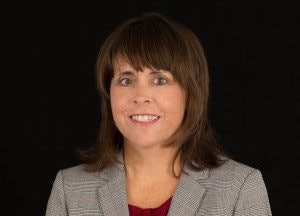North Carolina State University (NC State) is finding success with a program designed to increase access to its institution for low-to-moderate-income and first-generation community college students.
The Raleigh-based university has implemented a transfer dual-enrollment program, Community College Collaboration (C3), designed to provide students, specifically in rural communities in North Carolina, access to an NC State degree. The program launched in August 2018, with the first cohort of students accepted for the 2019 spring semester.
“What’s helping to make this program successful is the collaboration,” said Martha Harmening, director of the C3 program. “Collaboration is not just a part of our name but it’s something we are really intentional about.”
 Martha Harmening
Martha HarmeningThe program’s 10 partner schools include Alamance Community College, Central Carolina Community College, Durham Technical Community College, Johnston Community College, Nash Community College, Robeson Community College, Sampson Community College, Vance-Granville Community College, Wake Technical Community College and Wilson Community College.
With the goal of making the transfer process easier, the C3 program provides each student with an NC State advisor who visits their community college campus once or twice a semester for face-to-face support.
NC State also offers students access to various resources such as online degree audit and course planning tools. This allows students to identify the courses needed in order to fulfill both the associate degree and NC State’s bachelor’s degree requirements.
“Students are getting on track more quickly so that they are only taking courses that will count towards their NC State degree and not have a lot of courses fall off into non-degree credit,” said Harmening.
For C3 student Haley Evans, the program provided her with a second chance to attend NC State after previously being waitlisted.
“I think it is important for others to know that the program is a great way to still achieve your main end goal in a less traditional way and to gain many experiences beforehand that most students don’t get,” she said.
There is also the opportunity for students to connect with each other across the 10 community college campuses. NC State hosts on-campus or online events focused on topics such as career development and financial aid.
“Through the networking, through the advising, through the workshops and programming, all of it is really designed to help ease that student’s transition from the community college to NC State,” said Harmening. “And also, help improve their timely completion of an NC State degree.”
In order to apply to the program, students need to provide their official copies of high school or community college transcripts, write a short essay and include additional information related to their family’s economic background. The application is free of charge and doesn’t require SAT or ACT scores. Students can apply to the program either right out of high school or while they are seeking to complete their associate degree.
Up to 150 students are admitted into the program each year and then offered guaranteed admission to NC State. However, while at a community college, students must complete either an Associate of Arts, Associate of Engineering or Associate of Science degree.
“Having that security and knowing that I was already at NC State, I was able to feel more confident in myself,” said Joselyn Ramirez-Mendoza, a C3 program participant.
When she first arrived on the NC State campus, Ramirez-Mendoza felt that she was only one of a few non-traditional students at the university. However, with the help of the program, she has since found her place.
 Joselyn Ramirez-Mendoza
Joselyn Ramirez-Mendoza“My initial fear was that I wasn’t going to be making any friends and that everyone would be super young, but I’m over that now,” she said. “It was an initial observation and fear that I’ve since overcome because I realized that my experience is different and I still belong there.”
C3 also offers scholarship support. The goal is to help minimize debt upon graduation from NC State.
Ben Falero, a C3 participant, benefited from the program’s scholarship offerings. In order to make payments for his education, Falero had planned on working another job. However, prior to the first day of class, he received an email from the office of scholarships and financial aid saying that his bill had been updated.
“It was showing me my new balance,” he said. “The balance had dropped significantly from before. I was beyond confused. As I was searching through my information to see what caused the drop in balance, I saw that I was awarded a scholarship. I was so overwhelmed that I dropped to my knees and praised God.”
Most recently, the program received funding from the North Carolina GlaxoSmithKline Foundation that will create $5,000 worth of renewable scholarships for students working toward a science, technology, engineering or mathematics (STEM) degree.
Though early into the program’s development, Harmening has already seen students building connections socially and with the university.
“They feel like they’re an NC State student, so they already feel like they are a part of that community,” she said. “They are getting to know one another and building a network of people that they would know when they transfer to NC State.”
In the future, the program will expand to include specific opportunities for military-affiliated students, including active-duty, veteran or military dependent individuals.
“Our focus is really on building the program, developing the kinds of support programs that students are going to need to be successful and then implementing those as they transfer to NC State,” said Harmening.
Sarah Wood can be reached at [email protected].















